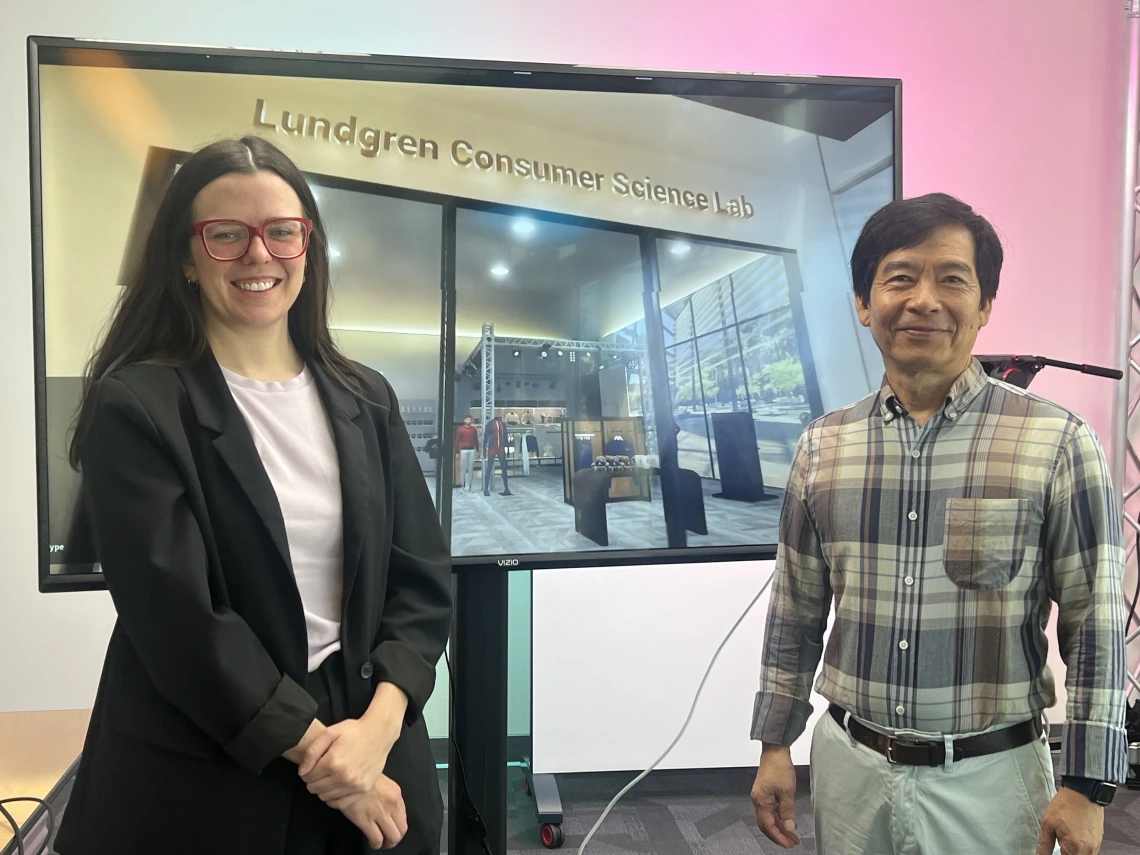VR Development Paves the Way for Sustainable Retailing Education

Date: August 28, 2024
The University of Arizona and the Terry J. Lundgren Center continues its efforts to revolutionize sustainability education, by integrating virtual reality (VR) technology into the Sustainable Retailing minor curriculum.
Leading the effort is Professor Soo Hyun Kim, Ph.D., who has written an essential guide for emerging retail students and current industry professionals. As a thought-leader, Dr. Kim has focused on the transformative impacts of advanced technologies such as Artificial Intelligence (AI), the Internet of Things (IoT), blockchain, Virtual Reality (VR), and Augmented Reality (AR) in the retail sector.
To coincide with this Fall’s launch of the Lundgren Consumer Science Lab, Center leadership worked with a multi-disciplinary team of interns from the University’s AI Core to build a "digital twin" of the retail space. Taking full advantage of GenAI, LLMs, GPTs, and emerging technologies like the Unreal Engine 5, the LCS lab’s digital twin is a virtual replica of the physical lab opening in McClelland Park. Both the physical lab and its virtual replica offer students and faculty an opportunity to study store optimization based on actual consumer activity. Both the physical lab and its virtual replica, offer students and faculty an opportunity to study store optimization based on actual consumer activity. As Dr. Kim has researched, these virtual technologies enhance operational efficiency and customer engagement and ultimately prepare future retail leaders to navigate the evolving retail landscape by fostering innovation and strategic adaptation.
The program is seeking further funding to ensure that the project will unfold in phases over 2 years.
Led by Dr. Kim, the 2024 - 2025 academic year, will see the piloting of VR modules in sustainable fashion, focusing on refining the VR environment to ensure educational effectiveness. In the following years, the curriculum will expand to incorporate sustainable practices in food and household products.
The expected outcomes are promising. The project anticipates increased student engagement and a deeper understanding of sustainability concepts through immersive VR experiences. It aims to provide a comprehensive sustainability education that equips students with the knowledge and skills needed for successful careers in the green economy. Furthermore, the initiative seeks to develop a scalable model for integrating VR technology into sustainability education, setting a benchmark for educational innovation.
By integrating VR technology, the University of Arizona is poised to set a new standard for sustainability education. The initiative promises to empower students to become leaders in the sustainable transformation of the retail industry, fostering educational equity and environmental stewardship among minority students.

